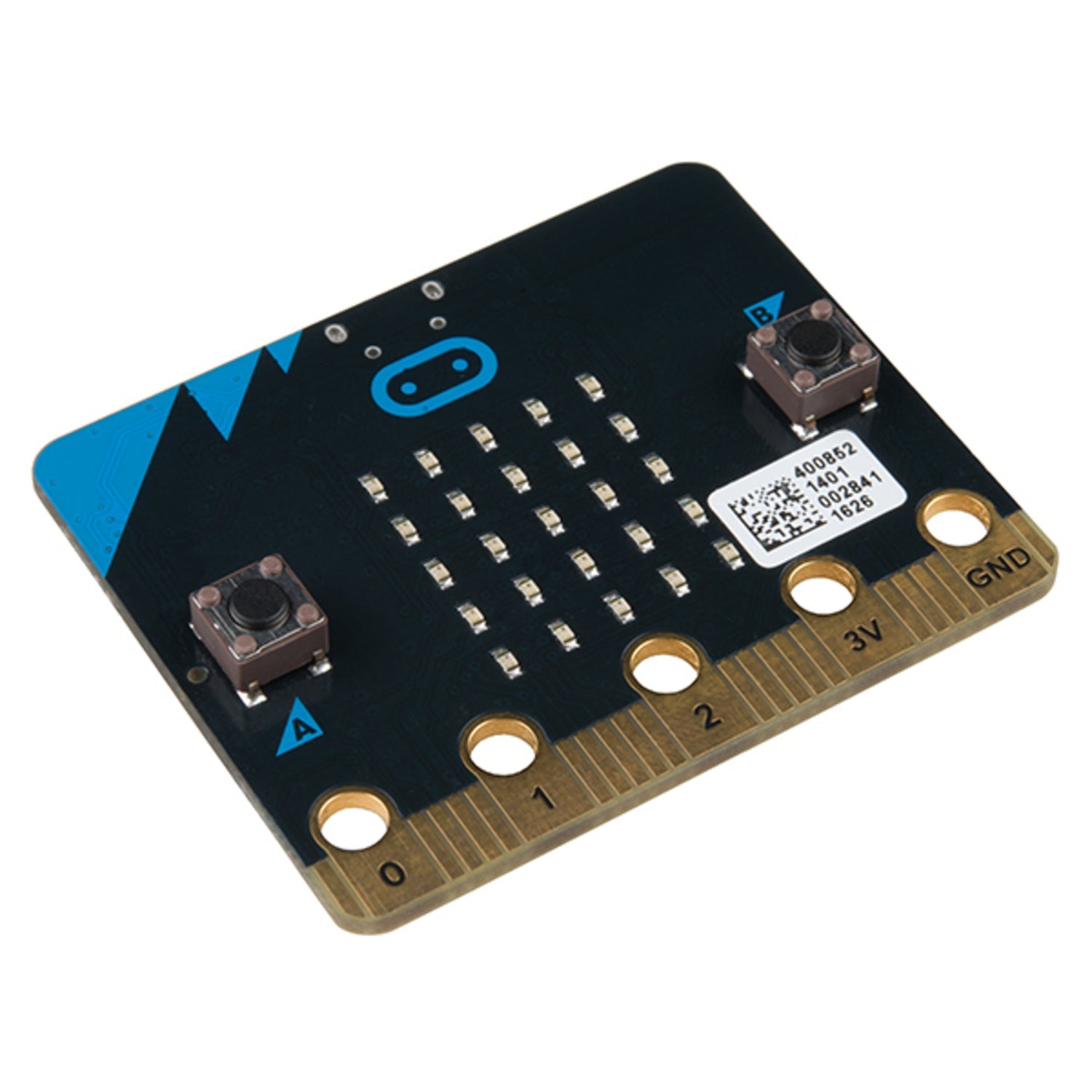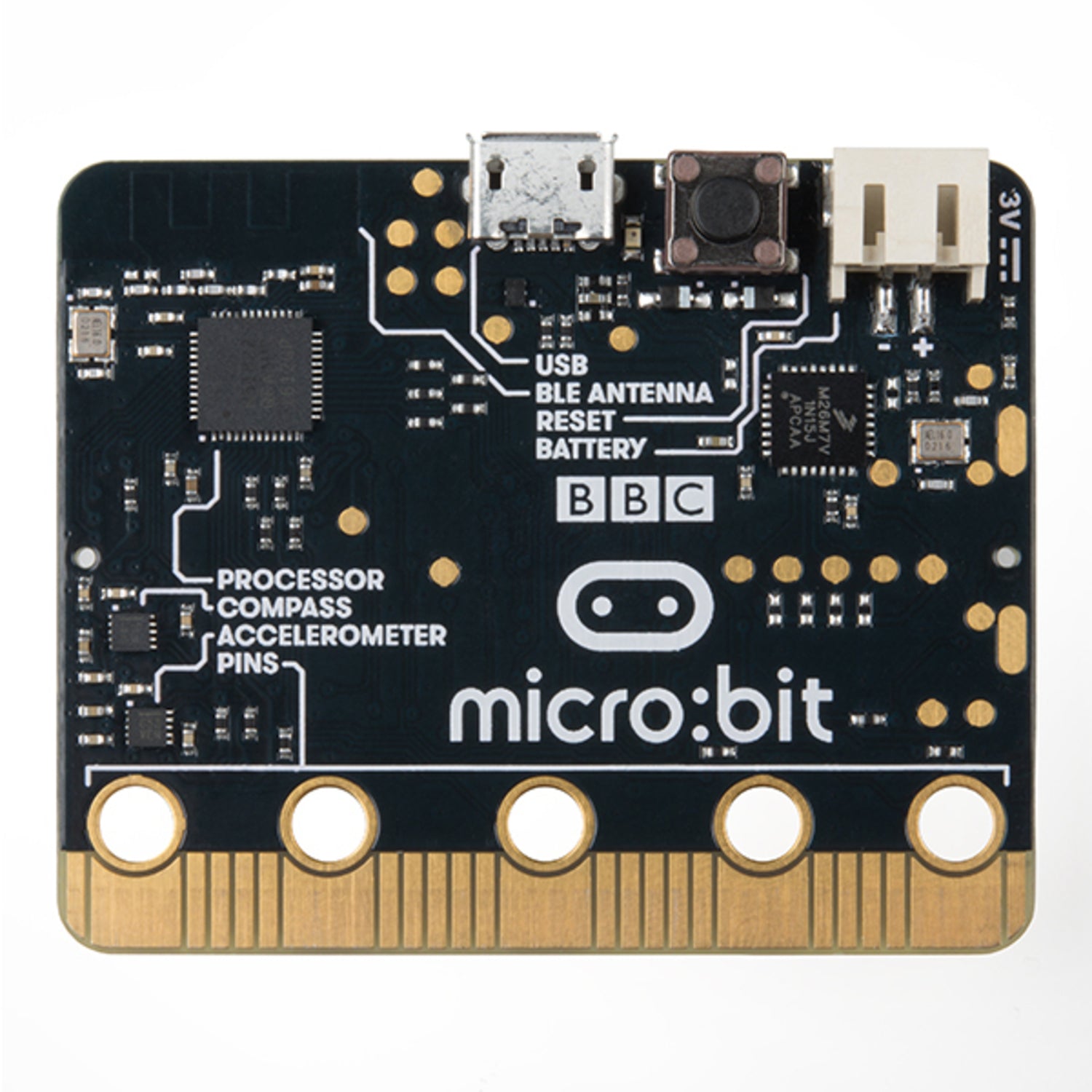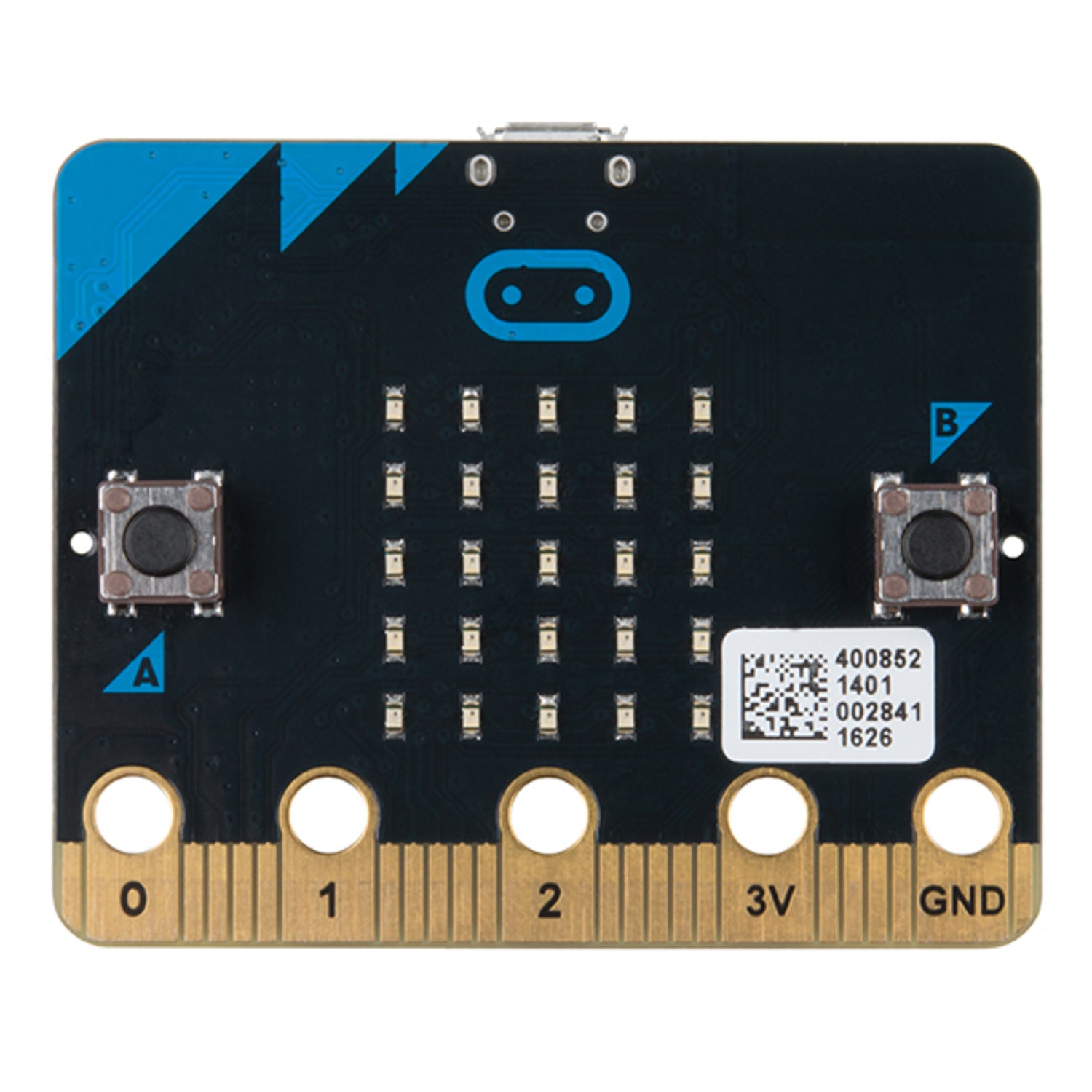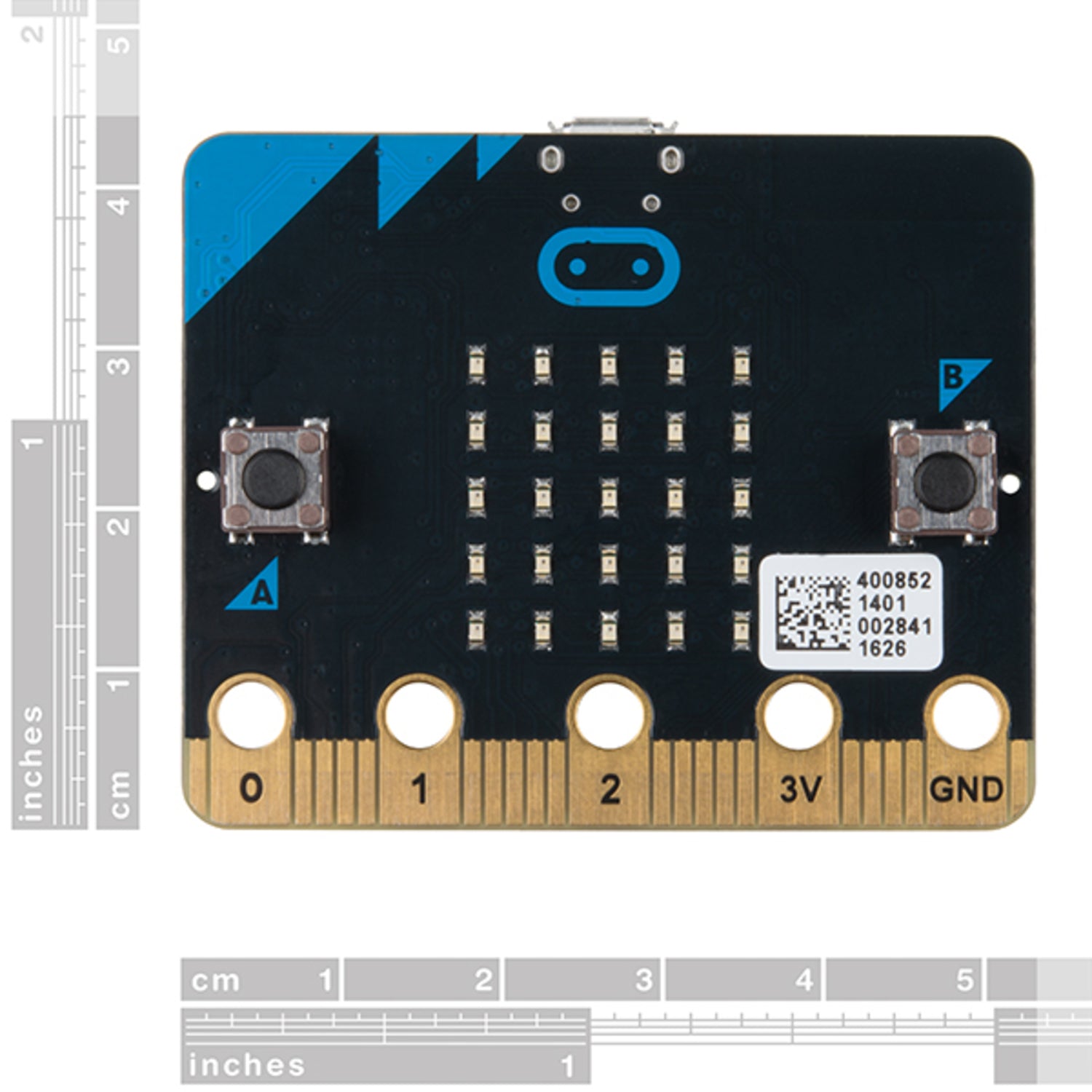The BBC micro:bit is an amazing pocket - sized computer that unlocks your creativity in the digital world. Each order comes with just the micro:bit board. You can code, customize, and control it from anywhere! Use it to create all kinds of unique things, like robots and musical instruments. It's half the size of a credit card but packed with hardware. There are 25 red LED lights that can flash messages. Two programmable buttons let you control games or manage your music playlist. The micro:bit can sense motion and tell your direction. It uses Bluetooth Low Energy (BLE) to connect with other devices and the Internet. On the front, there's a 5x5 LED array that acts as a light sensor, a small screen for drawing and showing info, and the two programmable buttons. On the back, you'll find the main controller with 256KB Flash, 16KB RAM, and a temperature sensor. There's also an accelerometer, compass, and Bluetooth Smart antenna, plus a microUSB and two - pin JST connector for power. At the bottom, 20 gold - tabbed edge pins and five ring connectors (three for digital/analog I/O, two for power and ground) let you attach external components. The larger - holed tabs work well with alligator clips for quick prototyping. Micro:bit provides an intuitive mobile app. You can send code to your micro:bit via Bluetooth without a USB cable, enhancing accessibility. Note that the micro:bit doesn't include cables or power sources. We suggest getting a micro:bit AA battery holder or a micro USB cable to power it. Key features include a 32 - bit ARM Cortex - M0 CPU, 256KB Flash, 16KB RAM, 5x5 Red LED Array, two programmable buttons, onboard sensors, BLE Smart Antenna, digital/analog I/O rings, power rings, 20 - pin edge connector, microUSB connector, JST - PH Battery Connector, and a reset button with a status LED. Available documents are the Getting Started Guide, Getting Started Videos, About micro:bit, micro:bit Hardware, and micro:bit Apps.




Using the micro:bit is easy. First, power it up. You can use a micro USB cable or a micro:bit AA battery holder since the board doesn't come with a power source. Once it's powered on, you can start coding. You can use the intuitive mobile app to send your code to the micro:bit over Bluetooth, no USB cable needed. Create all sorts of things like robots or musical instruments by using the programmable buttons and the 5x5 LED array. The LED array can be used as a light sensor, a screen to draw on, or to display words and numbers. When it comes to connecting external components, use the 20 gold - tabbed edge pins and the five ring connectors at the bottom of the board. The larger - holed tabs are great for alligator clips. Just clip them on and start prototyping. As for maintenance, keep the micro:bit clean and dry. Avoid exposing it to extreme temperatures or moisture. If you're not using it for a long time, remove the batteries to prevent damage. And remember, always refer to the Getting Started Guide and the other available documents if you run into any issues or want to learn more.